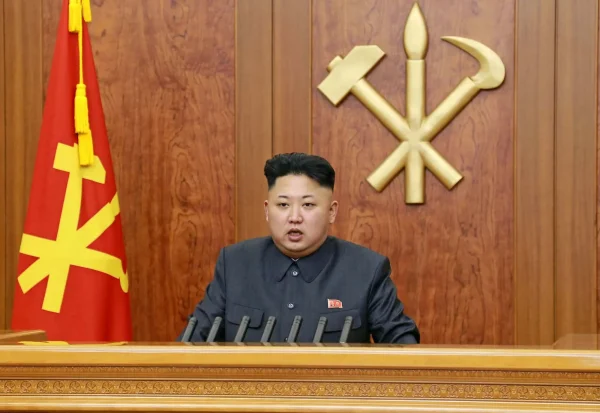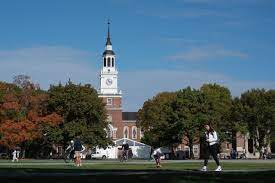None of the Above: Third Party Candidates
Jacob Wilson (11) takes a quiz to determine which presidential candidate he should vote for.
The 2016 election contains perhaps the two most widely disliked- even hated- presidential candidates in the history of American politics. The most recent Washington Post/ ABC News poll states that 53% of adults find Hillary Clinton, the Democratic nominee, unfavorable. 66% have the same opinion of her competition, the Republican nominee Donald Trump. The choice between “the lesser of two evils” has plagued voters, but many of them aren’t considering a third option. Although a modern third party candidate has never won the presidency, they sometimes play a decisive role on election day.
Third parties have been a presence in American politics ever since the days of the Federalists and the Democratic-Republicans. A few past presidents, disillusioned with the two-party system, have chosen to run for reelection as third-party candidates after completing their terms. In 1856, Democrat Millard Fillmore carried an incredible eight states and over 20% of the popular vote as a member of the Know-Nothing party. Teddy Roosevelt took second place as a Progressive in 1912, beating the incumbent William Howard Taft. Even presidents as famed as Abraham Lincoln needed help from third parties, who carried 30% of the popular vote in 1860. Although they were relatively more prominent in the 1800s, third parties are not a thing of the past. Ross Perot’s controversial 1992 campaign managed to win 19% of the popular vote, mainly in conservative southern states. He earned a spot on the televised debate stage, and he is often credited as partly responsible for Bill Clinton’s presidency. Green Party member Ralph Nader is similarly blamed for the outcome of the 2000 race, decided by a hair in Florida. His share of the vote, less than 3%, may seem small, but it was enough to take vital votes away from Democrat Al Gore and put George Bush in office. This year, Gary Johnson and Jill Stein could be the game-changers of the election.
Gary Johnson is running with potential vice president William Weld for the Libertarian Party. The ticket’s platform includes dramatic reduction of the national debt, tax code reform, and fierce protection of civil liberties. Some of Johnson’s more radical views include dissolving the Department of Education, completely privatizing healthcare, drastically relaxing anti-immigration laws, and removing all restrictions on guns. He is most famous for his “What is Aleppo?” gaffe when asked in a TV interview about the crisis in Syria and for his admitted use of marijuana, though he has pledged not to smoke in the White House. He is unflagging in his attacks on bipartisanship, and his website asserts repeatedly that he can “offer a breath of fresh air to a presidential election that is otherwise consumed by divisive partisan rhetoric.”
Jill Stein and her running mate Ajamu Baraka support the Green Party platform. Stein, “a mother, an organizer, physician, and pioneering environmental-health advocate,” and Baraka, a human rights activist, are playing heavily towards scorned Sanders supporters and the far left. Their platform focuses on care for the environment, while also backing the BLM movement, LGBTQ rights, and the eradication of student debt. Her more controversial plans include halving military spending, implementing a national $15 minimum wage, and addressing gun control as a national emergency. Like Johnson, she wishes to attract stranded voters; she sees herself as “the greater good, not the lesser evil.”
Also worth mentioning are Darrell Castle and Chis Keniston, who are running under the Constitution and Veteran parties, respectively. Evan McMullin, whose chances in Utah are growing more and more favorable, Ed Baker, a catch-all idea man, David Boarman, a devoted Christian, and Brian Briggs, a self-described “music lover” and “average guy,” are all running as independents.
Although the assortment of third-party candidates could not be more politically diverse, there is one issue they can all agree on- the bipartisan political system is, as Jill Stein has often put it, “broken.” Voters should carefully weigh all of their options, whether the tickets have earned a spot on the ballot or are asking for write-ins. One way to do so is to take this quiz– the results could be surprising.




Graham Granger • Nov 28, 2016 at 11:26 AM
Very good article. The history of third party voting was educational and in depth.